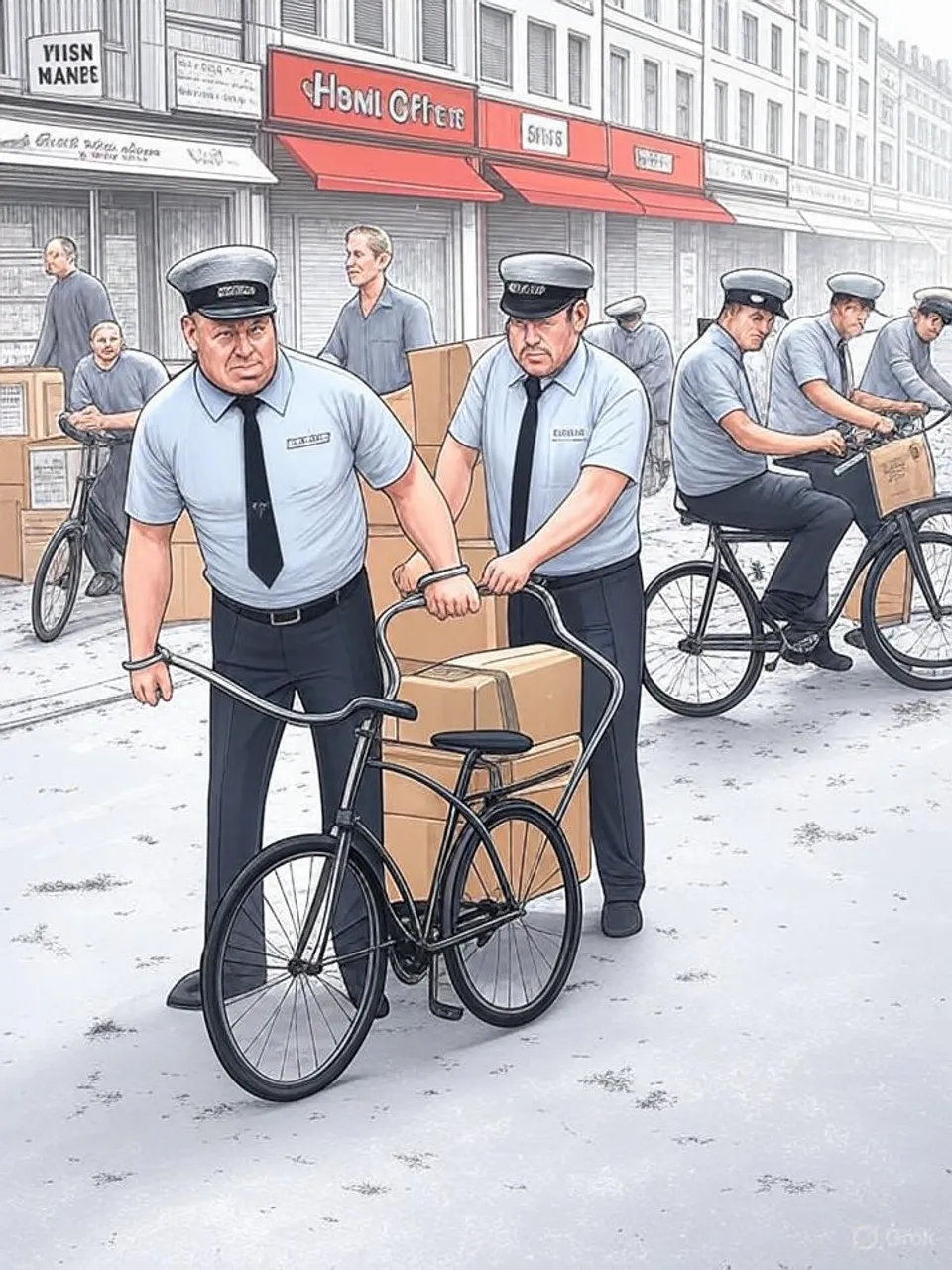Raids Detain Eight Thousand in Shadow Economy Crackdown

London's barbershops and delivery routes lead record immigration enforcement
Record arrests expose Britain's reliance on illegal labor in low-wage sectors, as government pledges fines for gig platforms amid persistent economic gaps. This reactive enforcement highlights systemic failures in immigration and labor policy across parties.
Commentary Based On
The Standard
London delivery drivers and barbershops targeted as illegal worker arrests hit record high
Eight thousand migrants detained in a single year signals the scale of unchecked illegal working in Britain’s economy.
Home Office figures for the period from October 2023 to September 2024 show immigration enforcement visits reaching 11,000 across the UK, the highest on record. London bore much of the brunt, with raids hitting barbershops like Promen in Battersea, where three Brazilian nationals were arrested, alongside delivery drivers and restaurants. These actions targeted sectors where low-wage labor fills persistent vacancies.
The arrests represent a 63 percent year-on-year increase, driven by a £5 million infusion into Operation Sterling. Traditional businesses face fines up to £60,000 per illegal worker, with potential closure. Yet gig economy platforms, reliant on app-based delivery, have evaded such penalties until now.
Government ministers now pledge to seal this loophole, extending fines to companies like those operating delivery apps. A six-week consultation launches this week on broader right-to-work checks. Home Secretary Shabana Mahmood frames the crackdown as a border security imperative, vowing arrests, detention, and removal for those in beauty salons, car washes, and similar roles.
Over 1,050 of the detained have already faced deportation. Border Security Minister Alex Norris acknowledges public perceptions that illegal entrants “melt” into the economy too easily. He cites the raids as a “strong signal” against such integration.
This enforcement surge follows years of rising small boat crossings and net migration figures that topped 700,000 annually under the previous Conservative government. Labour’s approach builds on that legacy, with digital ID mandates planned by the end of this Parliament to verify work rights. The Home Office argues these tools will disrupt smuggling networks and curb incentives for irregular arrivals.
Civil liberties groups and opposition figures contest the digital ID scheme, warning of surveillance overreach. Implementation details remain vague, but the push reflects deeper institutional reliance on technology to fix policy failures. Enforcement alone, however, does little to address why these jobs—often grueling and underpaid—go unfilled by legal residents.
Britain’s labor market exposes structural weaknesses. Official unemployment hovers around 4 percent, yet vacancies in hospitality, delivery, and personal services exceed 300,000. Illegal workers step in where wages stagnate and conditions deter locals, a pattern evident since the 2008 financial crisis.
Productivity in these sectors lags EU peers by 20 percent, per Office for National Statistics data. Governments of all stripes have tolerated this shadow economy, boosting GDP figures while eroding wage floors. The current raids disrupt it temporarily but ignore root causes like skills mismatches and regional inequalities.
Immigration enforcement has fluctuated across administrations. Under Labour from 1997 to 2010, net migration quadrupled; Conservatives from 2010 to 2024 promised reductions that never materialized. Record detentions now under a new Labour government highlight continuity, not rupture.
Accountability gaps persist. Employers caught hiring illegally rarely face lasting consequences; fines often pass costs to consumers. Migrants bear the brunt—arrested, detained, deported—while systemic demand for their labor endures.
This episode underscores Britain’s immigration apparatus as reactive, not preventive. Policies chase symptoms of economic dysfunction rather than reforming them. Ordinary citizens see public services strained by population growth, yet low-wage sectors collapse without the very workers now targeted.
The raids reveal a nation enforcing borders at the margins while core economic incentives pull people across them. Illegal working thrives because legal pathways fail to match reality. Until institutions confront this disconnect, enforcement peaks will merely mask ongoing decline in border control and labor market integrity.
Commentary based on London delivery drivers and barbershops targeted as illegal worker arrests hit record high by Rachael Burford on The Standard.